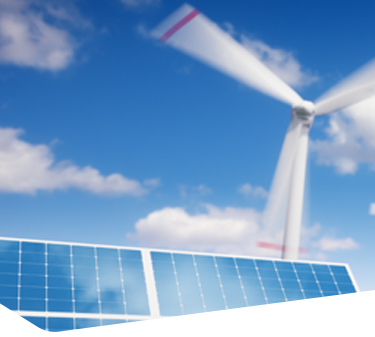Sustainability, Social Responsibility and preserving the climate and environment in which we live are critical themes we care in PetrolValves. We truly believe energy transition will play a critical role in the close future, being the pathway for transforming the global energy sector from fossil-based to zero carbon by the second half of this century.
There are many routes to such a destination, with different combinations of technologies and policies that can be implemented. The challenge is to identify the best strategies to guide the transition so that it happens in the optimal manner, maximizing economic and social benefits, wealth creation and inclusion of all stakeholders. Furthermore, an accelerated deployment of energy efficiency and renewable energy technologies as well as alternative sources of energy storage, are all part of a complicated scenario that will lead to the carbon free footprint of energy production, transmission and dispatching.
The energy transition will be tied to many different instruments to achieve that challenging target, requiring clear objectives and stable policy frameworks to reduce risk and ensure enough access to low-cost of capital. Reductions in the cost of renewable energy supply depend on technology innovation, but also on low-cost financing and streamlining of approval processes to minimize project cost.
Innovation is one of the key factors that will drive the energy transition process in de-carbonizing the energy sector. At its core innovation is the application of new technologies and practices with enhanced and desirable features. Innovation in renewable energy encompasses the changes that help overcome barriers and result in an accelerated deployment of renewables. It includes, among other things:
- technology breakthroughs that provide renewable solutions to sectors where at present no cost-effective alternatives to conventional energy technologies exist
- improvements to the existing renewable technologies, which reduce cost and stimulate deployment
- new business models and engagement of new actors across energy systems, allowing for a profitable scale-up of renewable technologies
- new types of financing that reduce cost and enhance access to funds
- enabling policy and regulatory innovations that provide incentives for market access and growth
- energy storage mechanisms and integration with fossil based and depleting fossil resources
Limiting climate change to below 2 °C implies a reduction of energy related carbon dioxide (CO₂) emissions of nearly 70 % from 2015 levels. Globally, more than 32 gigatons (Gt) of energy-related CO₂ were emitted in 2015. These emissions will need to fall continuously to 9.5 Gt by 2050 to limit warming to no more than 2 °C above pre-industrial levels. Energy efficiency measures and renewable energy will deliver the largest share, about 90 %, of the emissions reductions needed to decarbonize the global energy system. CO₂ emissions from industrial processes and waste management of synthetic and organic materials must be reduced at the same time. More countries are increasingly recycling plastics, but waste-to-energy or landfilling remain mainstream across the globe and yet, no solutions exists for plastics that accumulate in the ocean that leak from end-of-life collection.

